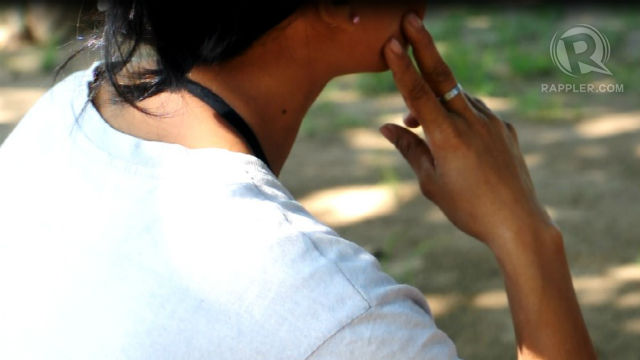SUMMARY
This is AI generated summarization, which may have errors. For context, always refer to the full article.

ALCALA, Pangasinan – In the municipality of Alcala, votes go for as low as P200.
According to tricycle driver Mang Leloy (not his real name), vote-buying is typical in the area. This 62-year-old said that local and national candidates always give residents money every election season to acquire votes.
“Eh depende yan sa uri ng tao kung magkano ibibigay ng politiko. Kapag barangay captain, P500. Kapag kagawad, P300. Sa mga residente lang, P200,” Mang Leloy said. (The amount given by politicians depends on the person’s social background. For barangay captains, the price is P500. For kagawads, it’s P300. For residents, it’s P200.)
Mang Leloy said that many vote-buying coordinators of different candidates approached him to offer money for his vote. He noted that the coordinators make people sign a sheet and then ask people for copies of their voters’ IDs.
“Hindi ko ibebenta boto ko. Taliwas iyon sa prinsipyo ko,” Mang Leloy added. (I won’t sell my vote. It’s against my principle.)
The other side
Nanay Selya (not her real name), a house wife from the same municipality, has a different view on vote-buying. She has been voting in the same municipality for the past 11 elections.
She said that she initially did not know what vote-buying is and that she was influenced by her neighbors. “Kinuha lang nila pangalan ko…tapos makalipas ng ilang araw, mayroon nang nagbigay ng tig-P200.” (They just got my name and then after a few days, I received P200.)
“Sabi ko para saan ito. Sabi nila bigay lang yan ng ilan sa mga politician. Kinuha ko na rin panggastos,” she added. (I asked what the money is for. They said it’s from one of the politicians. I just took the money to add to my budget.)
Nanay Selya however said that receiving money does not mean it will sway her vote.
“Para sa akin iyong mga tao na makakatulong sa mahihirap ang aking iboboto. Para sa akin, yung nararapat. Iyong talagang natutulungan kaming mahihirap,” she said. (For me, I will vote for a candidate who can really help the poor. I will vote for the deserving candidate, someone who can help us poor people.)
When asked about the qualities she is looking for in a candidate, Nanay Selya said, “Narinig namin ang mga plataporma nila…siyempre, titimbangin mo kung ano yung nararapat at titignan mo kung ano talaga ang magagawa nila.” (We heard their platforms, and of course, we weigh what is right and evaluate their capabilities.)
Nanay Selya said that she looks for a candidate who can walk the talk.
“Sasabihin nila yung tungkol sa mga problema…pero kulang naman sa gawa,” she added. (They talk about solutions to the problems but they lack action.)
The Commission on Elections (Comelec) office in Alcala claimed they have not received any reports regarding vote-buying in the municipality. Comelec staff member Frances Menor said that residents should report cases of vote-buying so that the Comelec can act on it.
Nanay Selya and Mang Leloy are only two of the 24,107 registered voters in Alcala, a municipality that boasts of having no debts. –Rappler.com
Add a comment
How does this make you feel?
There are no comments yet. Add your comment to start the conversation.